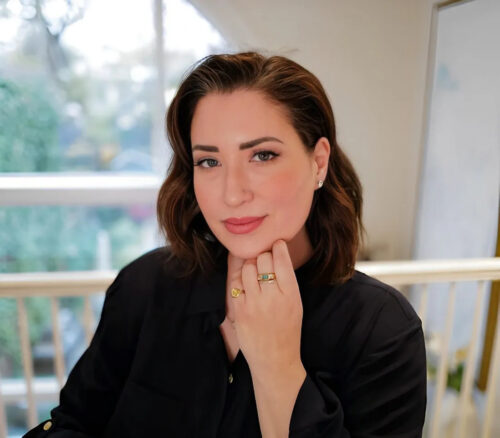
By Judy Carmack Bross
Bound for Chicago for a public event at the Chicago History Museum on September 30 hosted by the Junior League of the Chicago in partnership with the Guild of the History Museum, Emily Amick, widely known on social media as @emilyinyourphone and author of the newly released Democracy in Retrograde, is on a mission to empower women to incorporate civic engagement into their daily lives in a meaningful and sustainable way.
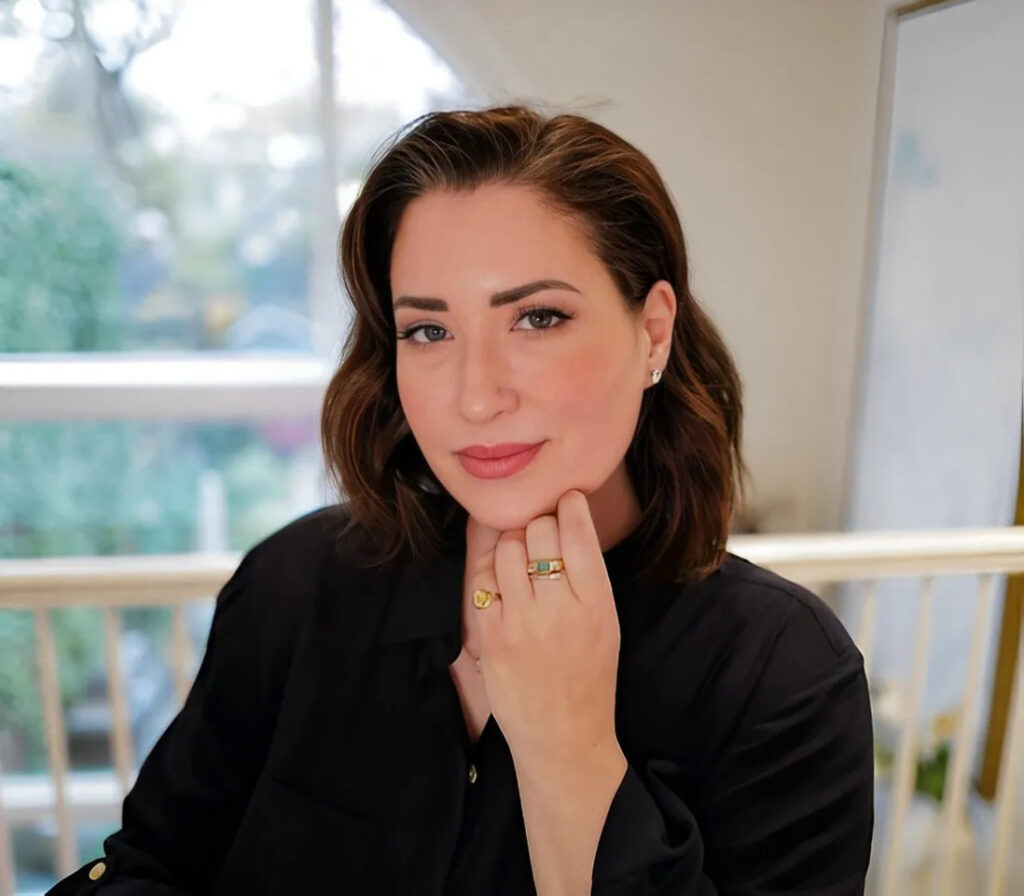
Emily Amick
Junior League of Chicago President Becky Hogan told us:
“The evening offers a unique opportunity to connect with like-minded women and learn how to build community through civic action. Whether you’re a seasoned activist or just beginning your journey into civic engagement, this event promises to leave you inspired and equipped with practical tools to make a difference. Come with all your burning questions about the future of our democracy whether it is why does politics seem hopeless, how to set an intentional news diet, and where do I get started.”
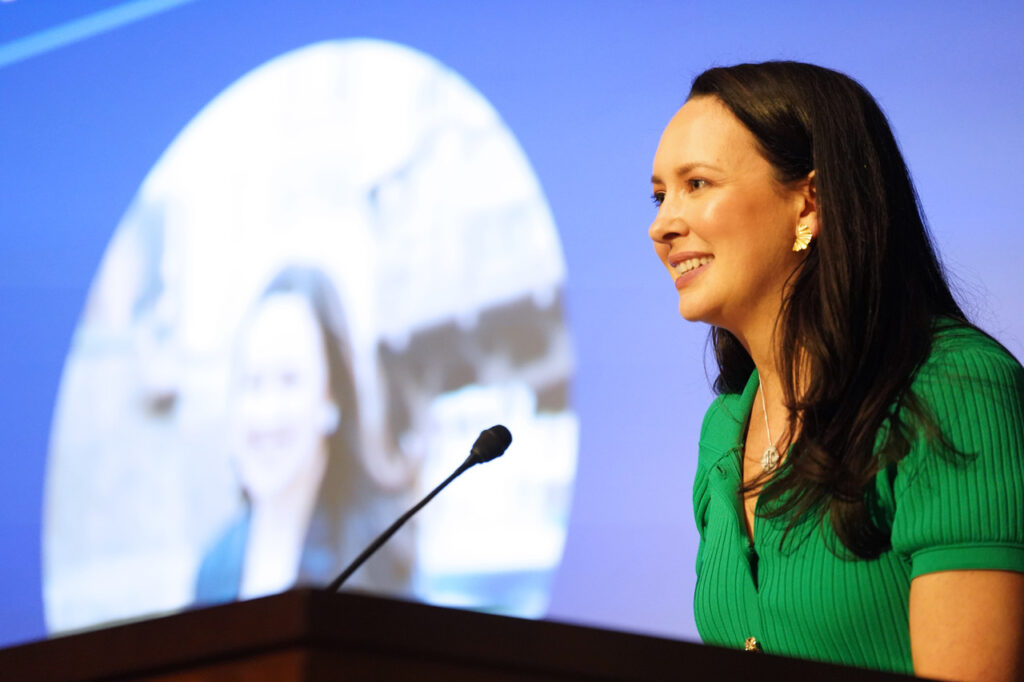
Becky Hogan, President of the Junior League of Chicago.
“Don’t miss this chance to be part of a growing movement that’s reshaping our democracy, one engaged woman at a time,” Hogan said. “The evening is based around a fireside chat concept with lots of Q and A time. Purchase of a ticket comes with a copy of Emily’s book Democracy in Retrograde.”
We recently spoke with Amick about the movement she has created.
CCM: Where did you grow up and when did you get your interest in community participation? Was it something that was discussed in your household?
EA: Both of my parents were public health professionals and civic engagement was exceptionally important in my house growing up. We watched the news together, we voted together, we talked about the who and why of political life together. But more than anything, my mother made me feel like I had a place in my community’s civic life. She brought me to volunteer for local candidates for office–women of color, usually–and gave me jobs. She took my ideas and amplified them in public spaces. She made sure I knew that it was both my obligation and also my opportunity to be involved.
CCM: Why is it important to tackle apathy and create a plan for civic engagement?
EA: Nearly 70 percent of America is part of the exhausted majority – these are people who reject political extremism but also, through their disengagement, are creating a vacuum for those extremists to control our country. We need to figure out how to engage, excite and mobilize the exhausted majority to do just a little bit, because if everyone does a small thing it means there will be big changes.
CCM: You quote Joan Baez that “Action is the Antidote to Despair.” How can we make our lives better, and those of the community, through taking action? How do we get away from the notion that whatever I can do wouldn’t matter?
EA: One of the big things we talk about in the book is getting more involved in local politics. There are massive cultural issues that are entrenched at the Supreme Court, like gun violence, that will not see immediate change. But if you want to work on getting a speed bump on your street, you can start now and within a year or two have a tangible reminder of the power of your voice.
CCM: What are some of the simplest things we can do to engage in our community?
EA: I always tell people to start with a book club!! Because building community, making friends who care about the same things you do, and most saliently, finding people to join you in going to school board meetings or volunteering at a shelter, is how we make civic engagement sustainable. Civic life isn’t just zoning boards and people screaming at each other, it’s the fabric that binds our communities together, and inevitably that is the relationships between people.
As you go through my book, Democracy in Retrograde, you will develop a civic action plan that is sustainable and authentic to you. The goal isn’t really for me to prescribe a specific thing, but rather to say – do something that you will want to keep doing.

Emily Amick
CCM: You advise building one’s own civic engagement calendar and writing a personal mission statement. How do these help us be more responsible in our communities?
EA: One of the reasons I think people are scared of getting civically engaged is because they feel the responsibility to do everything. And that’s impossible, we are all human beings who have jobs and families and lives. And we are all in different seasons. The goal is to figure out what civic actions you can add to your life that are cup-filling. So they are not another obligation, like taxes, that you have to suffer through, but something that you want to participate it.
CCM: You speak about community connectors, how can we become a connector?
EA: In the book we have a personality quiz, I don’t know about you but I loved taking them in 17 Magazine!! One of the four civic personalities is a connector. Some people are inherently interested in doing the connecting of a community, of bringing people together, finding commonalities and inspiring others. Personally I’m a leader, connector rising.
CCM: In Chicago you will be speaking to the Junior League of Chicago and the Guild of the Chicago History Museum, two women’s organizations, do you offer special advice to women as they build a richer life of community engagement,
EA: One of the things I talk about a lot is imposter phenomenon– it’s not called imposter syndrome anymore. So many times I hear from women, I don’t know enough, I don’t belong there, I’m not worthy of civic leadership.
Engaging in civic life or activism inevitably requires speaking out and challenging prevailing norms and power structures. The experience of taking on such a role can be daunting. In practice, this results in women and people from marginalized communities, especially communities of color, being less likely to run for elected office. They know they’ll be working twice as hard for half as much, with double the criticism. Lack of surety manifests as a reluctance to participate, not just in running for office, but also in voicing one’s opinions, joining campaigns, or leading grassroots or local movements.
We’ve heard countless times that people feel they aren’t knowledgeable enough to be civically engaged, that they don’t have a place at the table, and that getting a seat is about as realistic as getting through a Ticketmaster presale. To that we say: When has sounding like a completely ignorant moron ever stopped our elected officials? Never, that’s when.
Here’s the truth: Your lived experience teaches you about what needs to be done in your community, in your life, in your kid’s life, and in your friend’s life. It’s a disservice to people to assume that they don’t have an instinct about what needs to be changed. The point of delving down into your personality isn’t necessarily to figure out what issue you want to work on, but how you want to work on that issue.
You’re going to make mistakes, and even if you don’t, we promise you will still feel stupid at one point or another. Move forward with a sprinkle of the delusion that your least favorite politician would proudly display. As the internet says: delulu is the solulu.
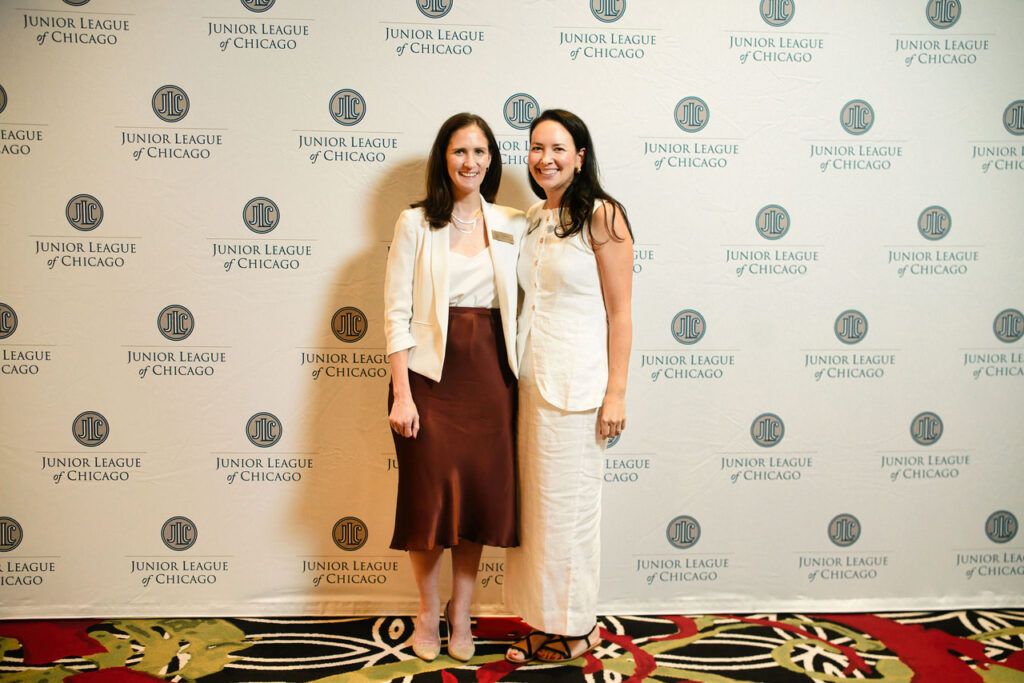
Sarah Kimmer, Executive Vice President of the Junior League of Chicago and Becky Hogan
Purchase of a ticket comes with a copy of Democracy in Retrograde and includes a donation to the Junior League of Chicago.
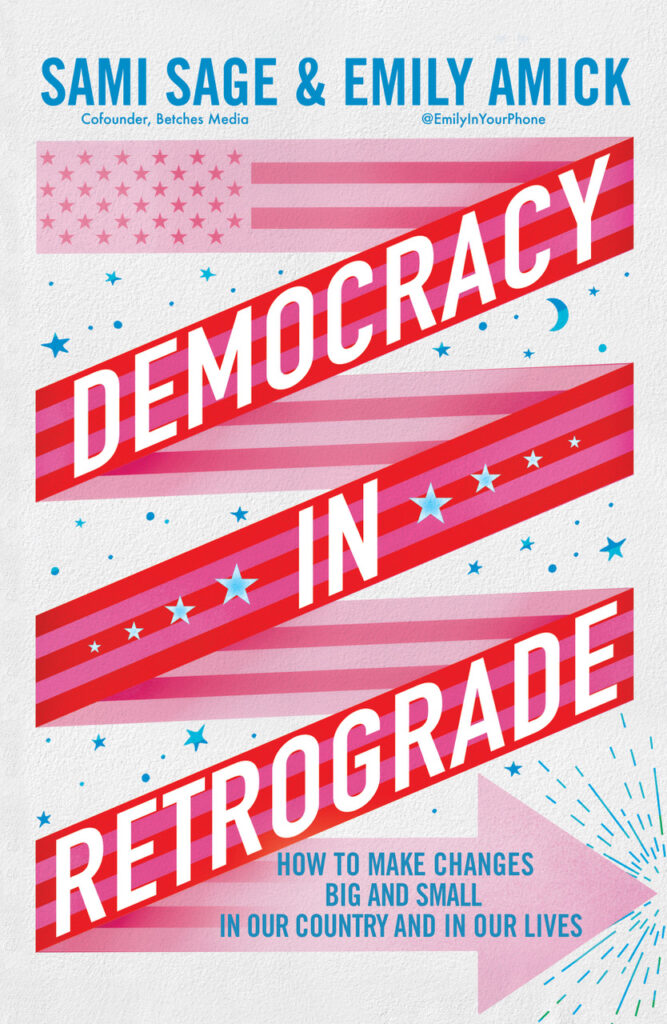
For more information about the live event, please visit Women Shaping Democracy: An Evening with Emily.



